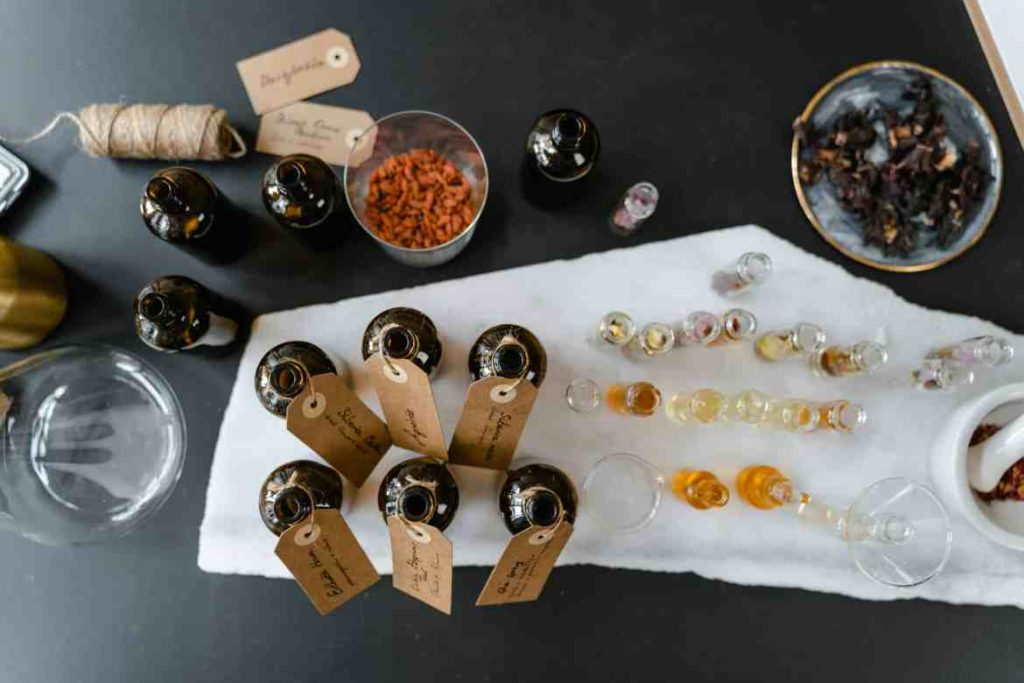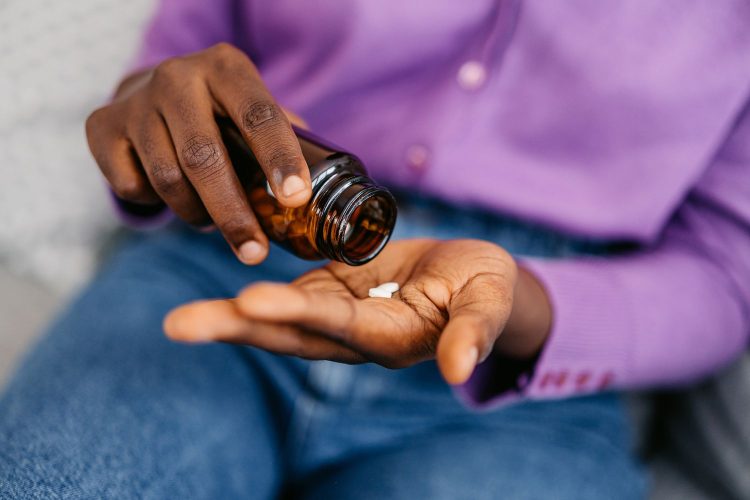In an era dominated by pharmaceutical interventions and digital mental health tools, the resurgence of interest in herbal remedies for emotional wellness signals a return to nature’s apothecary. Across cultures and centuries, plants have played a central role in soothing the human mind, promoting emotional equilibrium, and nurturing resilience. Today, as stress, anxiety, and mood disorders rise globally, a growing number of individuals and healthcare practitioners are exploring botanicals not merely as complementary medicine but as viable first-line options. These herbal treatments, derived from roots, leaves, flowers, and seeds, offer gentle yet effective support for emotional balance—rooted in tradition, yet now increasingly validated by science.
Understanding the Connection Between Herbs and Mental Well-being
The mind and body are not isolated systems, and emotional health is intricately tied to physical balance. Herbal remedies work on this interconnection by influencing the nervous system, hormonal responses, and even gut health, all of which are closely associated with mood regulation. The primary appeal of herbal treatments lies in their ability to support the body’s natural healing mechanisms rather than overriding them, often with fewer side effects than synthetic drugs.
Many herbs used for emotional balance act on neurotransmitters like serotonin, dopamine, and GABA (gamma-aminobutyric acid), or modulate cortisol, the primary stress hormone. Others help by improving sleep quality, enhancing cognitive clarity, or reducing systemic inflammation—an often-overlooked contributor to mood disorders. Together, these multifaceted actions help the individual build emotional resilience in a way that aligns with holistic health philosophies.
Popular Herbs for Emotional Regulation
There is a wide array of herbal allies in the quest for emotional stability. Below are some of the most studied and traditionally revered herbs for managing stress, anxiety, low mood, and emotional dysregulation:
- Ashwagandha (Withania somnifera): This adaptogenic root, rooted in Ayurvedic medicine, is known for its ability to modulate cortisol levels, reduce anxiety, and enhance overall stress resilience. Ashwagandha helps restore balance in the hypothalamic-pituitary-adrenal (HPA) axis, which governs the body’s stress response.
- Rhodiola Rosea: Another adaptogen, Rhodiola enhances stamina, reduces fatigue, and helps manage emotional exhaustion. It has been shown to increase serotonin levels and improve symptoms of mild to moderate depression and burnout.
- Passionflower (Passiflora incarnata): Often used for its calming effects, passionflower increases GABA in the brain, promoting a sense of relaxation without sedation. It is especially useful for anxiety-induced insomnia.
- Lemon Balm (Melissa officinalis): With its gentle sedative and mood-lifting properties, lemon balm is commonly used to ease anxiety, restlessness, and nervous tension. It also supports cognitive function and digestive health, contributing to overall emotional wellness.
- St. John’s Wort (Hypericum perforatum): Perhaps the most well-known herb for depression, St. John’s Wort has demonstrated efficacy comparable to conventional antidepressants for mild to moderate depression. It works by inhibiting the reuptake of serotonin and dopamine, although it must be used cautiously due to potential interactions with other medications.
- Chamomile (Matricaria chamomilla): Traditionally consumed as a tea, chamomile has mild sedative effects and is well-documented for reducing symptoms of generalized anxiety disorder. It also supports digestion, which is intimately connected to mood.
- Lavender (Lavandula angustifolia): Used both aromatically and internally, lavender has powerful anxiolytic and antidepressant properties. It helps soothe the nervous system and can reduce agitation, nervousness, and insomnia.
- Holy Basil (Ocimum sanctum): Revered in Ayurvedic tradition as a sacred plant, holy basil acts as an adaptogen that normalizes blood sugar and cortisol, stabilizes mood, and enhances mental clarity.
- Valerian Root (Valeriana officinalis): Best known as a sleep aid, valerian also reduces nervous tension and anxiety by increasing GABA availability. It is often included in herbal blends for evening use.
How Herbal Remedies Support Emotional Balance Holistically
Herbal remedies do more than alter neurotransmitter levels—they embody a holistic approach that addresses multiple systems simultaneously. Here’s how botanicals help cultivate emotional balance from a broader perspective:
- Balancing the Nervous System: Many herbs exert calming effects on the sympathetic nervous system while enhancing parasympathetic activity—the “rest and digest” mode crucial for emotional recovery.
- Supporting the Gut-Brain Axis: The gut microbiome significantly influences mental health. Herbs like chamomile and peppermint soothe the digestive system and may positively affect gut flora, indirectly improving mood.
- Reducing Inflammation: Chronic low-grade inflammation is increasingly recognized as a factor in depression and anxiety. Herbs like turmeric, ginger, and green tea possess anti-inflammatory properties that may protect mental health.
- Enhancing Sleep: Insufficient or poor-quality sleep disrupts emotional regulation. Herbal sedatives such as valerian, passionflower, and hops promote restorative sleep, thus enhancing emotional resilience.
- Improving Hormonal Balance: Emotional fluctuations often stem from hormonal imbalances, especially in conditions like PMS or menopause. Herbs like chasteberry and black cohosh help regulate hormones and improve mood.

Scientific Evidence Supporting Herbal Use
While herbal medicine has a deep historical foundation, modern research is increasingly validating its efficacy for emotional health. Numerous clinical trials and meta-analyses have demonstrated the benefits of certain herbs, particularly for stress and mild to moderate anxiety or depression. For instance, a 2021 meta-analysis published in Phytomedicine confirmed that St. John’s Wort was as effective as selective serotonin reuptake inhibitors (SSRIs) for mild depression, with fewer side effects. Similarly, studies on ashwagandha have shown significant reductions in cortisol and self-reported stress scores compared to placebo groups.
However, it is important to note that herbal efficacy can be influenced by the form of preparation, dosage, and duration of use. Quality control is critical, as active constituents can vary greatly between products. Standardized extracts and products from reputable manufacturers offer more consistent results and safety.
Integrating Herbal Remedies into Emotional Wellness Plans
Herbal medicine is most effective when integrated into a comprehensive lifestyle and wellness plan. Rather than acting as quick fixes, herbs function as long-term allies, supporting gradual shifts toward balance. Here are ways to integrate them safely and effectively:
- Start with a Single Herb: Begin with one herb at a time to monitor effects and identify which botanicals best support your unique constitution.
- Choose the Right Form: Herbal remedies are available as teas, tinctures, capsules, essential oils, and powders. Choose a form that suits your lifestyle and therapeutic needs.
- Mind the Dosage: Consult a licensed herbalist or integrative physician to determine appropriate dosages, particularly when combining herbs or using alongside medications.
- Be Patient and Consistent: Herbal effects are cumulative and may take days to weeks to manifest. Daily use is often required for noticeable changes.
- Combine with Mind-Body Practices: Pair herbal support with practices such as yoga, breathwork, journaling, and psychotherapy for synergistic emotional healing.
Safety Considerations and Interactions
While herbs are natural, they are not inherently free of side effects or interactions. St. John’s Wort, for instance, can reduce the effectiveness of birth control pills, antidepressants, and certain heart medications. Pregnant and breastfeeding individuals should exercise particular caution with herbal use. Always consult with a healthcare provider, particularly if you have pre-existing conditions or are taking other medications. Buying from credible sources and ensuring third-party testing is a vital step in preventing contamination or adulteration.
Cultural and Traditional Wisdom in Herbal Healing
The global history of herbal medicine is rich with cultural nuances. Traditional Chinese Medicine (TCM), Ayurveda, Indigenous healing systems, and Western herbalism each offer unique perspectives on the emotional uses of plants. For example, TCM categorizes herbs based on their effect on energy systems (Qi), organs, and emotional archetypes. Ayurveda tailors herbal prescriptions to the individual’s dosha, or constitution, emphasizing emotional harmony through balance.
Modern herbal practitioners often draw from these traditions to craft personalized formulas. This synthesis of ancient wisdom and modern science is shaping a new era in herbal healing—one that honors both the complexity of emotional suffering and the potential of nature-based support.
The Future of Herbal Remedies in Mental Healthcare
As the demand for natural mental health interventions grows, the integration of herbal remedies into mainstream care is becoming more likely. Already, some psychiatrists and psychologists incorporate herbal strategies into their practice, particularly in holistic or integrative clinics. Digital health platforms may soon offer herbal recommendations based on biometric and mood tracking data, further personalizing care. Scientific exploration into plant-based compounds like psilocybin and cannabidiol (CBD) also underscores a renewed respect for nature’s pharmacopoeia in addressing mental distress.
Regulatory frameworks, quality control standards, and clinical education will be crucial in ensuring that herbal medicine continues to develop safely and effectively. Research funding and collaboration between traditional healers, medical scientists, and policy makers will shape the evolution of herbal support in emotional health.
Conclusion: Reclaiming Balance Through Botanical Wisdom
Herbal remedies offer a gentle, holistic, and time-honored approach to managing emotional well-being. They invite individuals to slow down, reconnect with nature, and take a proactive stance in their emotional care. While they are not a replacement for therapy or pharmaceuticals in severe cases, they are powerful tools in the broader landscape of emotional healing. With increasing scientific validation and cultural acceptance, herbal medicine stands as a testament to the power of ancient wisdom in addressing modern challenges. Whether sipped in a calming tea, applied as an aromatic oil, or taken as a daily capsule, these plants remind us that emotional balance is not found in isolation—it is cultivated through harmony with the world around us.







































